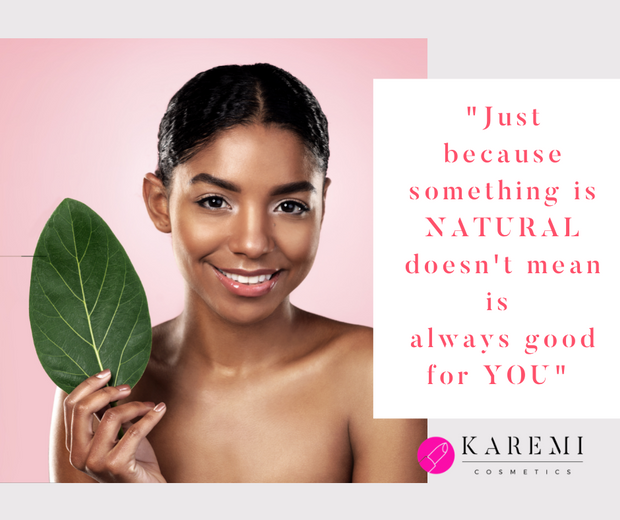NATURAL DOES NOT MEAN SAFE¨
Posted by Colette Bouchez > was an award-winning medical journalist with more than 20 years of experience. A frequent contributor to WebMD on Jun 28th 2021
Natural Cosmetics: Are They Healthier for Your Skin?
When it comes to skin allergies and avoiding harmful ingredients, natural beauty products aren't always best. Natural beauty products: They're all the rage with supermodels, Hollywood stars, and the girl next door. But can these often pricey products really make a difference for your skin, and if so, do you get what you pay for? Maybe not. If it's prettier, gentler, problem-free skin care you think you're getting, you could be in for a surprise.
"The perception is that natural ingredients are more pure and kinder to skin than something made in the lab, but nothing could be farther from the truth," says dermatologist Joel Schlessinger, MD, past president of the American Society of Cosmetic Dermatology and Aesthetic Surgery. In fact, he says, if you're buying natural products to avoid breakouts or allergic reactions, you might be disappointed; they won't necessarily be a better option.
Chemicals in Cosmetics
But many women are going natural to avoid certain ingredients that research shows may be harmful. These include preservatives, such as parabens, and other ingredients including petrochemicals and phthalates, which some studies show can mimic the effects of hormones in the body or, at high levels, possibly increase the risk of cancer. While the Personal Care Products Council and other industry groups maintain these ingredients are safe, others, such as the Environmental Working Group, point to mounting evidence that consumers should avoid them.
Unfortunately, shopping for naturals doesn't guarantee you won't find those ingredients in your products. Because the government hasn't defined the term "natural," no regulations exist about what products can and cannot contain. But that may soon change. This summer, the Natural Products Association launches a new seal of approval aimed at identifying those products that meet a strict industry-driven standard to be considered natural. Products will start bearing the new seal by early 2009.
'Natural' Products: Read the Labels
In the meantime, learn to read the labels of your beauty products -- even those labeled "natural." Environmental groups caution against ingredients such as parabens (which are used as preservatives); petrochemicals and their by-products (often found in skin creams, foundations, and lip balms); mercury (in mascara and eyedrops); lead (in lipsticks); dioxane (in shampoos and body washes); and phthalates in nail polishes and hair sprays.
Natural Beauty Products and Allergies
Be aware that all-natural ingredients can cause allergic reactions. One study in the British Journal of Dermatology shows that popular natural ingredients such as tea tree oil, feverfew, lavender, and jasmine brought on allergic or sensitivity responses in some people. Use the "sniff" test. "If a product says it contains natural strawberries but smells like imitation strawberry-flavored candy, then it may not be as natural as you think," says Schlessinger.


